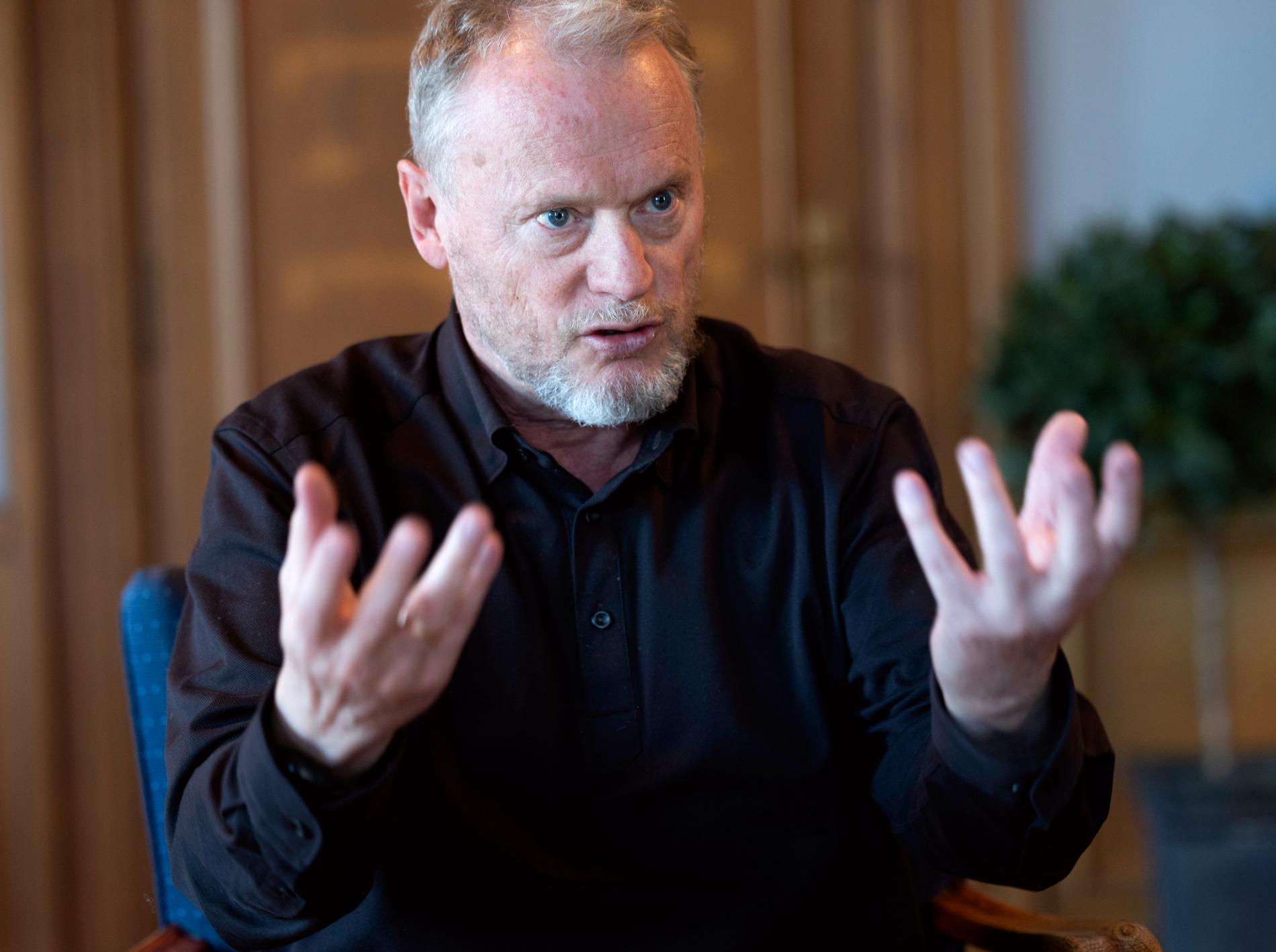
The Corona Commission believes that more and more skewed distribution of vaccines could have prevented many admissions. The aftermath remains a challenge for Oslo, according to the city council president.
“I am concerned about the long-term consequences of today’s wrong decision,” Raymond Johansen tells VG.
Public debate over vaccine distribution has begun to rage In January 2021. Then Oslo-Region, which were hit hard, and required more vaccinations for high-infection areas. Discussions continued into the summer.
The Corona Commission delivered on Tuesday Dom sin On dealing with Corona Solberg government. They believe the government delayed the decision for too long “despite the fact that, among others, the World Health Organization, the Holden Commission, and the FHI group of experts on ethics and prioritization on which the government’s vaccine strategy was based, recommended it.”
The leader of the Oslo city council was one of those who were at the forefront of the vaccine demands.
He told VG that he thought this was the most dangerous thing in the panel’s ruling.
It is clear that giving priority early to areas with high infection pressure would take better care of health and reduce disturbances in the community. We could have avoided the disease and may have had less strict procedures, he says.
After Effects
The Corona Committee says it believes that the vaccine strategy did not sufficiently contribute to reducing infection, and thus the burden of strict infection control measures where there was a lot of infection. They also believe that a larger skewed distribution could have resulted in fewer admissions. Read more here.
The head of the Oslo City Council notes that they also concluded that measures to combat the epidemic and infection are hitting children, young people and the most vulnerable groups the most.
Read more about it: Failed to catch all the weak children.
He points out that many of the vulnerable people in Oslo, who have lived with very strict procedures for a long time, are those who could have done better in Oslo and received several vaccinations before.
The Corona Commission specifically emphasized the consequences of the epidemic in regions such as eastern Oslo. The eastern Oslo region was one of the hardest hit, at the same time we talked about filling as much water as it burns, he said.
– so blatant
Johansen points to the fierce debate over vaccine distribution. The mayor of Molde, among other things, came out and criticized Oslo, before that in After that it turned out that he was in contact with one of Erna Solberg’s close employees.
“I also have a need, and I must be allowed to say, I think it was very blatant, says Dawn, referring to the fact that it was said that Oslo residents were unable to comply with infection control rules and therefore should not be rewarded with more vaccinations.”
– What happened is Erna Solberg apologize to me She doesn’t know anything, and I believe that, too. But in this case, we had a discussion about vaccines, he says.
Johansen says he thinks it is political pressure that has made it difficult for the government to give more vaccines to areas with a lot of infections.
– The government did not have the political courage to implement it. It’s important to have the political courage to make decisions about sending vaccines to areas with greater infection pressure, Johansen says, even if it’s Oslo.
The head of the Oslo city council says he thinks it is important to say that the epidemic has gone well in Norway compared to other countries, and that those who have worked with it should gain recognition.
– But this is an important criticism here too that we must learn from. So, if the only thing you want to get the impression on is that, we’re hurting ourselves, he says.
Erna Solberg: Skeptical of criticism
Former Prime Minister Erna Solberg wrote in a Facebook post that she was “skeptical” of the commission’s allegations about the previously uneven distribution.
The overall, comprehensive analyzes we received from the FHI do not support claims that the earlier skewed distribution would have resulted in significantly less disease, provided we maintain some control over the epidemic, you think.
Analyzes show significant gains only if unrealistic assumptions about high prevalence of infection are used as a basis. As I interpret the committee’s view, their proposal means that vulnerable people with underlying diseases in rural areas, who in the worst case may lose their lives to infection, will have to wait while healthy young people in central areas take the lead. Solberg writes that I disagree.
“We supported the skewed distribution when we received clear professional advice about it, but only when the vast majority of the underlying diseases across the country were vaccinated,” the former Prime Minister wrote.
NIPH: No other country chose it
Camilla Stoltenberg told VG that the National Institute of Public Health (NIPH) in two rounds recommended uneven distribution of vaccines in areas of high infection pressure:
In the first time, the substituents had a large distribution and a modest skew.
– Then she chose the humble government. The second time around, we made a recommendation where the government could have given its approval somewhat earlier, says the FHI director.
NIPH will assess whether their recommendations should be stronger or come earlier.
And remember that there is also a risk associated with geographic drift, and it can also lead to insecurity in large parts of the population, which can feel let down by health authorities.
It can lead to increased polarization and distrust — and if there’s something we need during a pandemic, it’s confidence in the vaccination programme, says Camilla Stoltenberg.

“Organizer. Social media geek. General communicator. Bacon scholar. Proud pop culture trailblazer.”
